No, I regret nothing, all I regret is having been born, dying is such a long tiresome business I always found
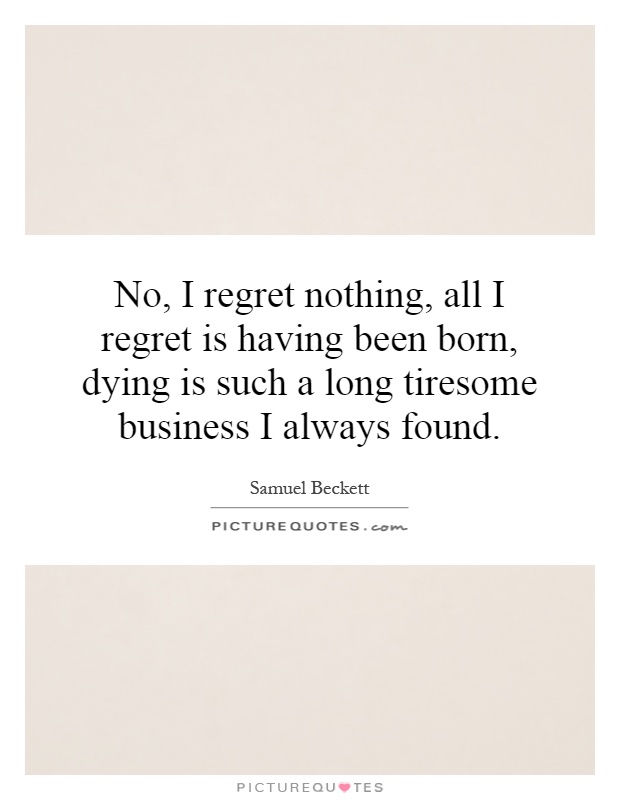
No, I regret nothing, all I regret is having been born, dying is such a long tiresome business I always found
Samuel Beckett, the renowned Irish playwright and novelist, is known for his existentialist themes and bleak outlook on life. The quote, “No, I regret nothing, all I regret is having been born, dying is such a long tiresome business I always found,” encapsulates the essence of Beckett’s philosophy on the human condition.Beckett’s works often explore the futility of existence and the inevitability of death. In his most famous play, “Waiting for Godot,” two characters, Vladimir and Estragon, wait endlessly for a mysterious figure named Godot who never arrives. The play is a metaphor for the absurdity of life and the sense of hopelessness that pervades human existence.
The quote reflects Beckett’s belief that life is ultimately meaningless and that death is a welcome release from the burdens of existence. The speaker expresses a sense of resignation and weariness towards life, viewing death as a relief from the struggles and disappointments of living.
Beckett’s own life was marked by personal struggles and a sense of alienation. He experienced profound loss and hardship, including the death of his father and brother, as well as his own struggles with depression and illness. These experiences undoubtedly influenced his dark and pessimistic view of the world.
Despite the bleakness of his worldview, Beckett’s works are also marked by a sense of dark humor and absurdity. His characters often engage in nonsensical dialogue and engage in bizarre, repetitive actions. This juxtaposition of humor and despair reflects Beckett’s belief in the absurdity of human existence and the inherent contradictions of life.

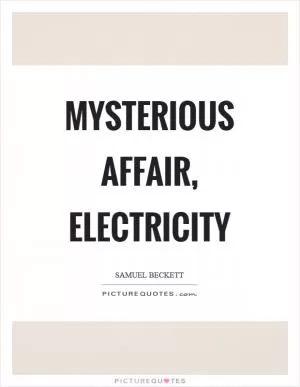


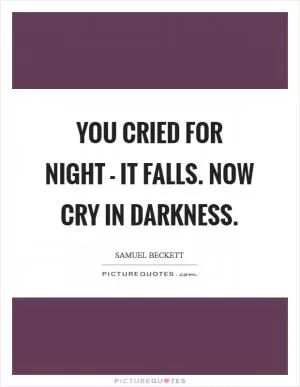

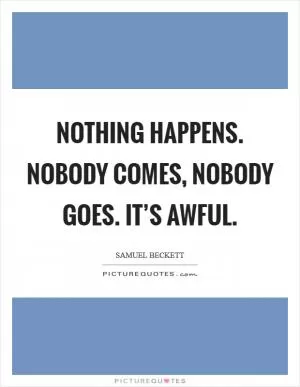

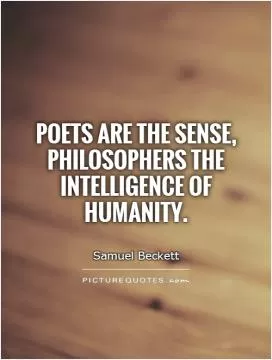
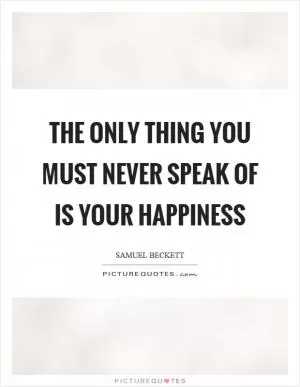

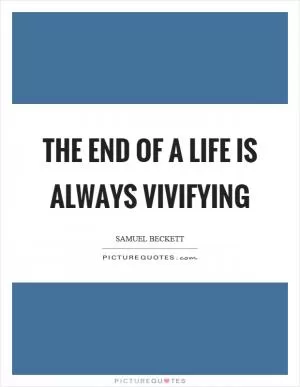
 Friendship Quotes
Friendship Quotes Love Quotes
Love Quotes Life Quotes
Life Quotes Funny Quotes
Funny Quotes Motivational Quotes
Motivational Quotes Inspirational Quotes
Inspirational Quotes